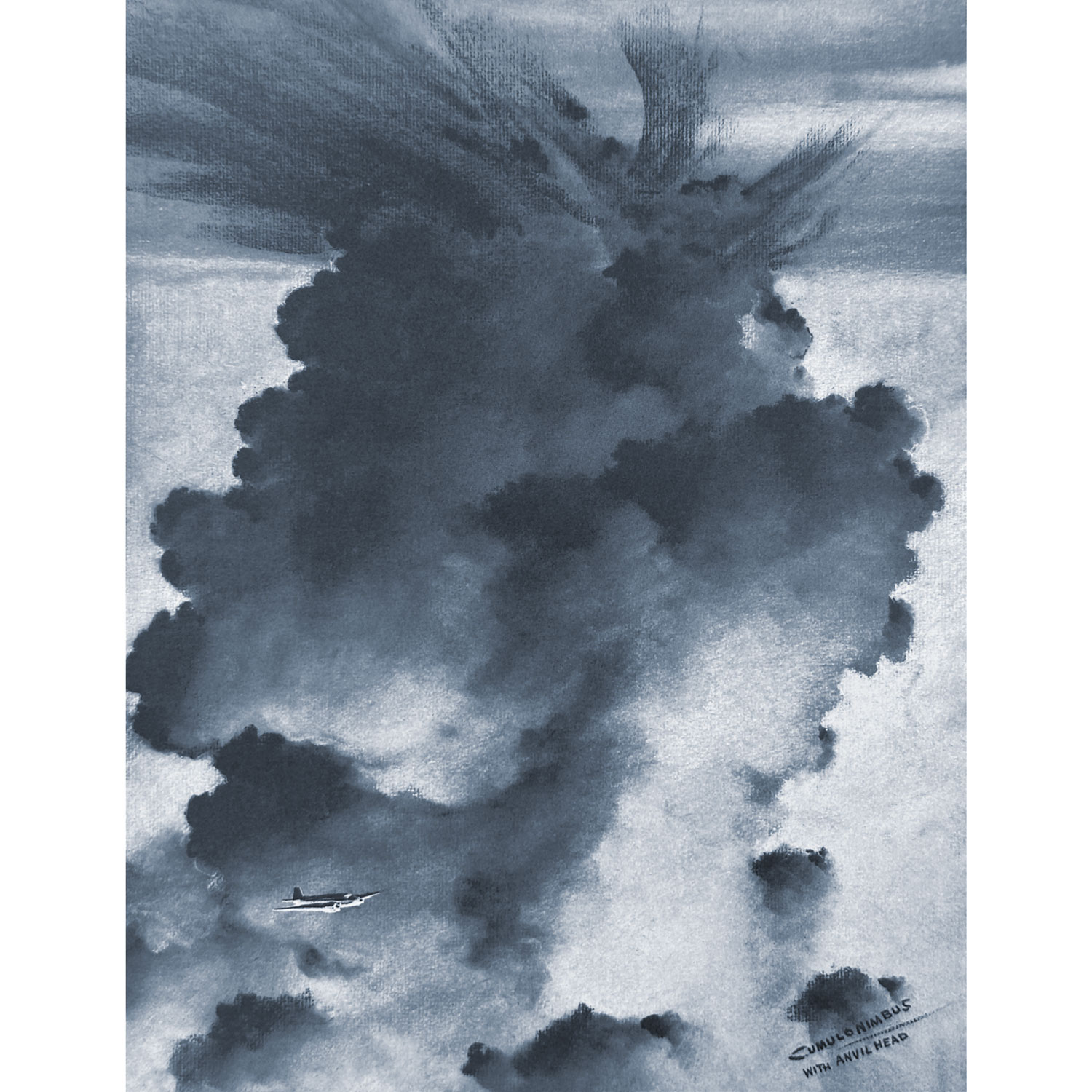Eric Sloane Week: Wednesday
Eric Sloane’s first and most enduring artistic love was with the sky. By the late 1920s, the artist made his way back east from Taos and was haunting Roosevelt Field in Long Island, NY, the famous airfield where Charles Lindbergh had set off in 1927 on his solo transatlantic flight. Sloane traded his lettering and paintings of aircraft to the pilots who flew them in exchange for rides. A chance encounter and subsequent friendship with famous aviator Wiley Post was a catalyst for Eric’s change in his artistic focus.
Sloane recalled that it was Wiley Post who told him during a flight that ‘Someday, an artist will come along and paint just clouds and sky.’ Sloane decided to become that artist and took to painting cloudscapes. He was entranced by the incredible heights reached by the summits of thunderheads and the exquisite colours found only in the sky.
His first complete cloudscape, a dark and foreboding rendition of a violent thunderhead, was hung for sale at the Roosevelt Field Inn. Sloane secretly feared that no one would purchase such a large view so few had ever witnessed, so he placed a price tag on it that he considered an ‘outlandish’ sum. He reasoned that, if the painting failed to sell, it would be because of price, not lack of quality. The painting was bought by the trailblazing aviator Amelia Earhart, who was very much familiar with such a view of clouds.
Whatever happened to Sloane’s painting bought by Amelia Earhart is a mystery, rather like the fate of the pilot herself, but this Cumulonimbus with Anvil Head illustration from Clouds, Air and Wind (1941) depicted a similar subject matter. This themed week was proposed and written by Wil Mauch (Member 60,370).
Image from ‘Aware: A Retrospective of the Life and Work of Eric Sloane’ by Wil Mauch, courtesy of the family of Eric Sloane.



